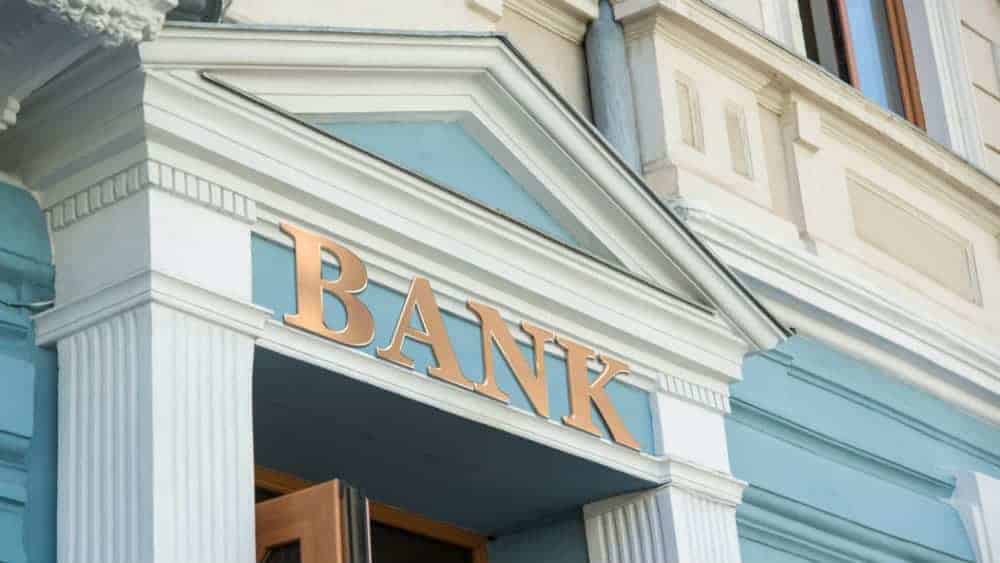
In 2020, the pandemic showed an example of what could happen to “stable” dividend stocks like the big bank stocks. Indeed, when there’s economic uncertainty, the big Canadian bank stocks, which are typically viewed as blue-chip companies, will fall hard, too.
Here’s how the Big Six Canadian banks fared during the pandemic market crash last year. From peak to trough, Royal Bank of Canada (TSX:RY)(NYSE:RY) stock dropped about 33%, Toronto-Dominion Bank stock fell 34%, Bank of Nova Scotia stock declined 37%, BMO stock fell 42%, CIBC declined 35%, and National Bank of Canada (TSX:NA) dropped 47%.
In fiscal 2020, the banks increased their provisions for credit losses to set aside more money for an expected higher level of bad loans. Logically, they set aside more than needed.
As it turned out, the results weren’t that bad. In the last fiscal year, National Bank’s and RBC’s earnings were the most resilient, with their adjusted earnings per share falling about 5% and 12%, respectively.
Are you sitting on nice gains in your Canadian bank stocks?
If you were lucky and courageous enough to buy any of the big Canadian bank stocks during the pandemic market crash, you’re likely sitting on nice gains.
Let’s say you picked up RBC shares for an average price of about $90 per share. By now, you’d be sitting on price gains of about 30% on that position.
If you bought National Bank shares at about $55, your unrealized gains would be approximately 55%.
Thinking of selling your Canadian bank stocks?
Some investors might be tempted to book those outsized gains. After all, the long-term average stock market returns are only about 7%.
However, you might choose to hold the bank shares for multiple reasons. The Big Six Canadian banks demonstrated their strength and ability to recover in economic downturns.
About a decade prior to the pandemic, their financial results were also defensive against the global financial crisis. That is, their stocks fell substantially by up to 50% during that crisis, but their financial results weren’t half as bad — with some even increasing their adjusted earnings per share during that period!
In other words, when the bank stocks fell meaningfully, it was time to load up their shares. Other than getting nice price appreciation when the macro environment normalizes, investors will also enjoy safe dividend income.
By buying low, bank shareholders secure high yields on their shares. This is a passive-income stream you can enjoy for a very long time.
By buying RBC and National Bank at $90 and $55, respectively, during the pandemic market crash, your effective dividend yields on those bank shares would be roughly 4.8% and 5.1%, respectively.
Investor takeaway
The big Canadian bank stocks have more than recovered from the market crash last year. Congratulations if you bought (more) shares during the crash.
Holding the banks as a part of a diversified portfolio is a good idea. They provide nice passive income and are resilient against economic downturns. When the market crashes, it could be an excellent time to buy more shares to hold for perpetual passive income.
As usual, keep your stock/sector allocations in check. If one has 50% of their stock portfolio in the banks, they should highly consider diversifying elsewhere.
Speaking of stocks that are worthy of holding…
The 10 Best Stocks to Buy This Month
Renowned Canadian investor Iain Butler just named 10 stocks for Canadians to buy TODAY. So if you’re tired of reading about other people getting rich in the stock market, this might be a good day for you.
Because Motley Fool Canada is offering a full 65% off the list price of their top stock-picking service, plus a complete membership fee back guarantee on what you pay for the service. Simply click here to discover how you can take advantage of this.
Fool contributor Kay Ng owns shares of Royal Bank of Canada, The Bank of Nova Scotia, and The Toronto-Dominion Bank. The Motley Fool recommends BANK OF NOVA SCOTIA.






